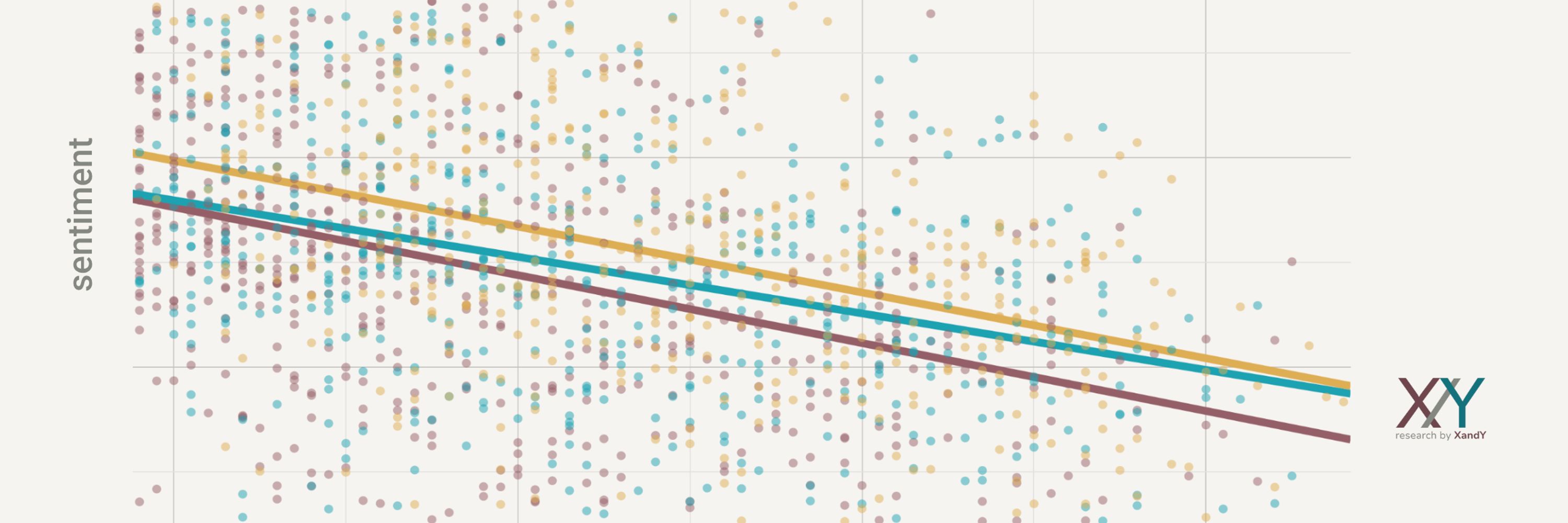

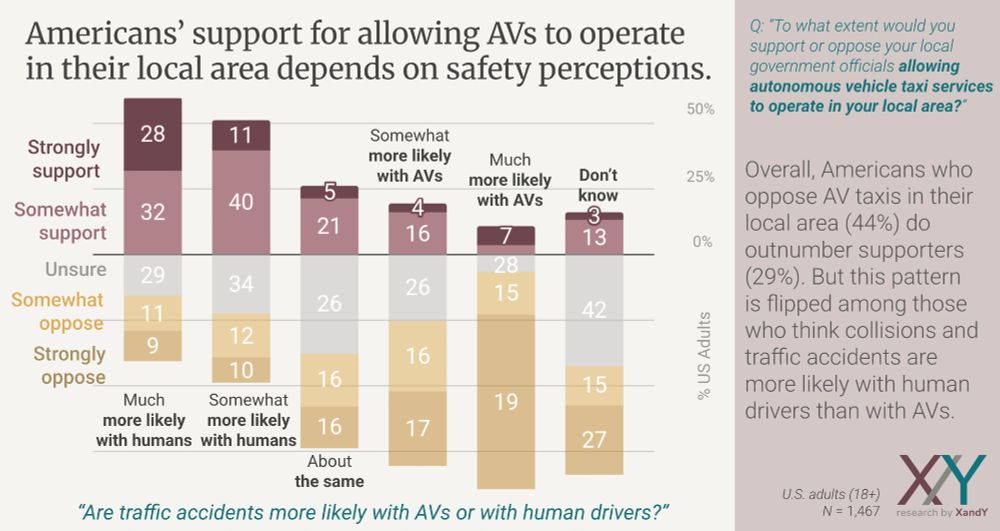
This gap between perception and reality will be a primary challenge on the road to mass scale AV adoption.

This gap between perception and reality will be a primary challenge on the road to mass scale AV adoption.
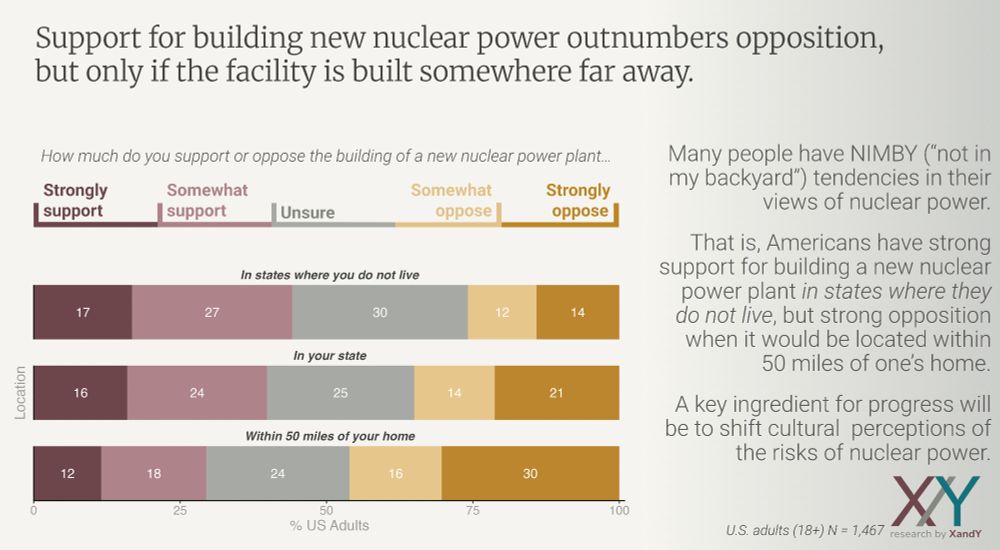
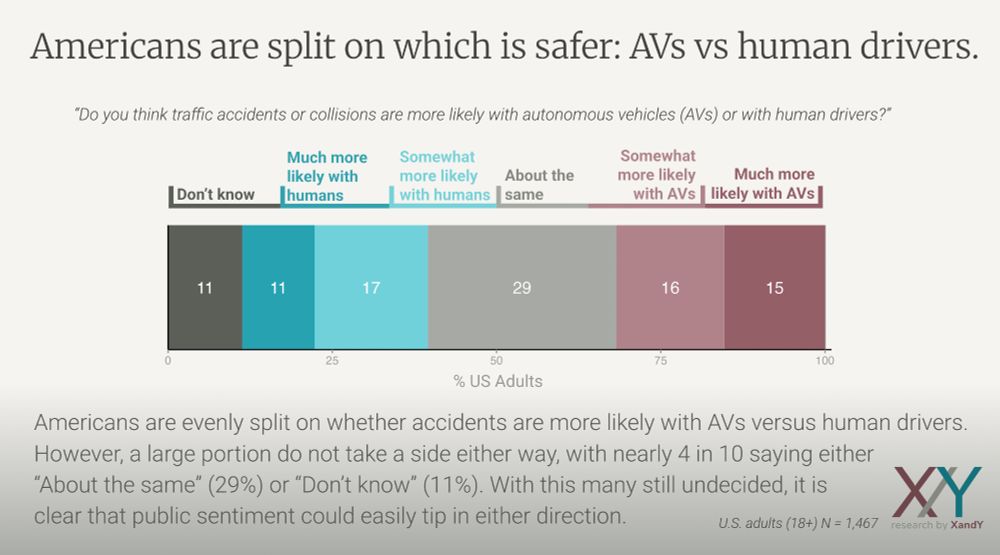
Data from our recent national study showed that only about 1 in 3 U.S. adults correctly estimated the current state of AVs (that they're being used in a few major cities).

Data from our recent national study showed that only about 1 in 3 U.S. adults correctly estimated the current state of AVs (that they're being used in a few major cities).

Our national poll shows some clear answers to this. Although most Americans (81%) have never owned any digital assets, only HALF of that group (50.4%) says they are unlikely to acquire some in the future.

Our national poll shows some clear answers to this. Although most Americans (81%) have never owned any digital assets, only HALF of that group (50.4%) says they are unlikely to acquire some in the future.
In AAA's survey, only only 13% of U.S. drivers say a fully self-driving vehicle is important to them, where as 64% of want automatic emergency braking, and 59% want lane-keeping assistance.
newsroom.aaa.com/2025/02/aaa-...

In AAA's survey, only only 13% of U.S. drivers say a fully self-driving vehicle is important to them, where as 64% of want automatic emergency braking, and 59% want lane-keeping assistance.
newsroom.aaa.com/2025/02/aaa-...
A: When this means there's very little opposition!
In our national poll, we found that 51% of Americans who have *never* owned crypto said they feel neither positive nor negative sentiment... just neutral.
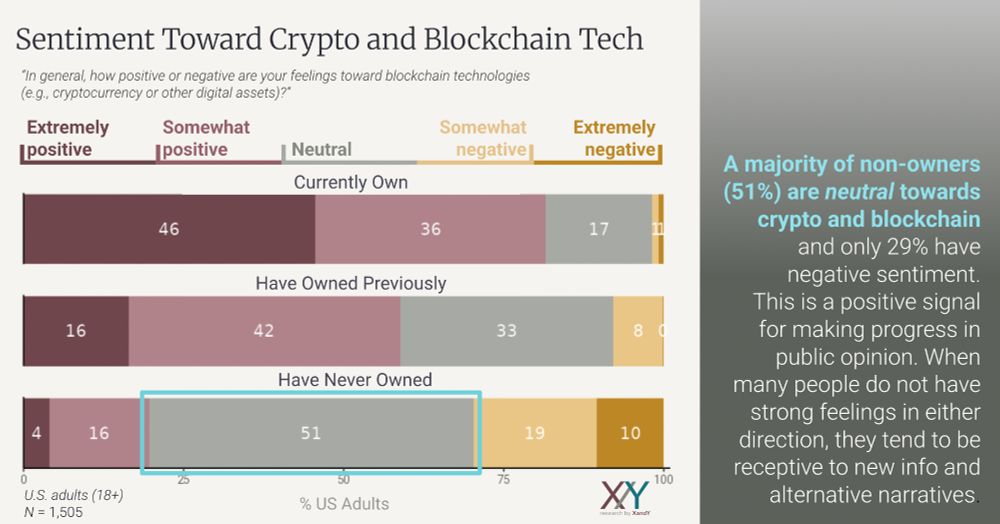
A: When this means there's very little opposition!
In our national poll, we found that 51% of Americans who have *never* owned crypto said they feel neither positive nor negative sentiment... just neutral.
Typically with new tech, you'd expect younger people are more likely to participate. But in our national study, we see that ownership drops dramatically among adults under 25, despite peaking in ages 25-34.

Typically with new tech, you'd expect younger people are more likely to participate. But in our national study, we see that ownership drops dramatically among adults under 25, despite peaking in ages 25-34.
Our new national survey in partnership with The Digital Chamber shows that most Americans are unable to identify any specific benefits or risks of crypto.

Our new national survey in partnership with The Digital Chamber shows that most Americans are unable to identify any specific benefits or risks of crypto.
We've had an exciting few years working with private clients. As we launch our public work, our social accounts will distribute data and strategy to help further our mission:
--> accelerating diffusion of the world's most important new ideas and innovations.

We've had an exciting few years working with private clients. As we launch our public work, our social accounts will distribute data and strategy to help further our mission:
--> accelerating diffusion of the world's most important new ideas and innovations.

